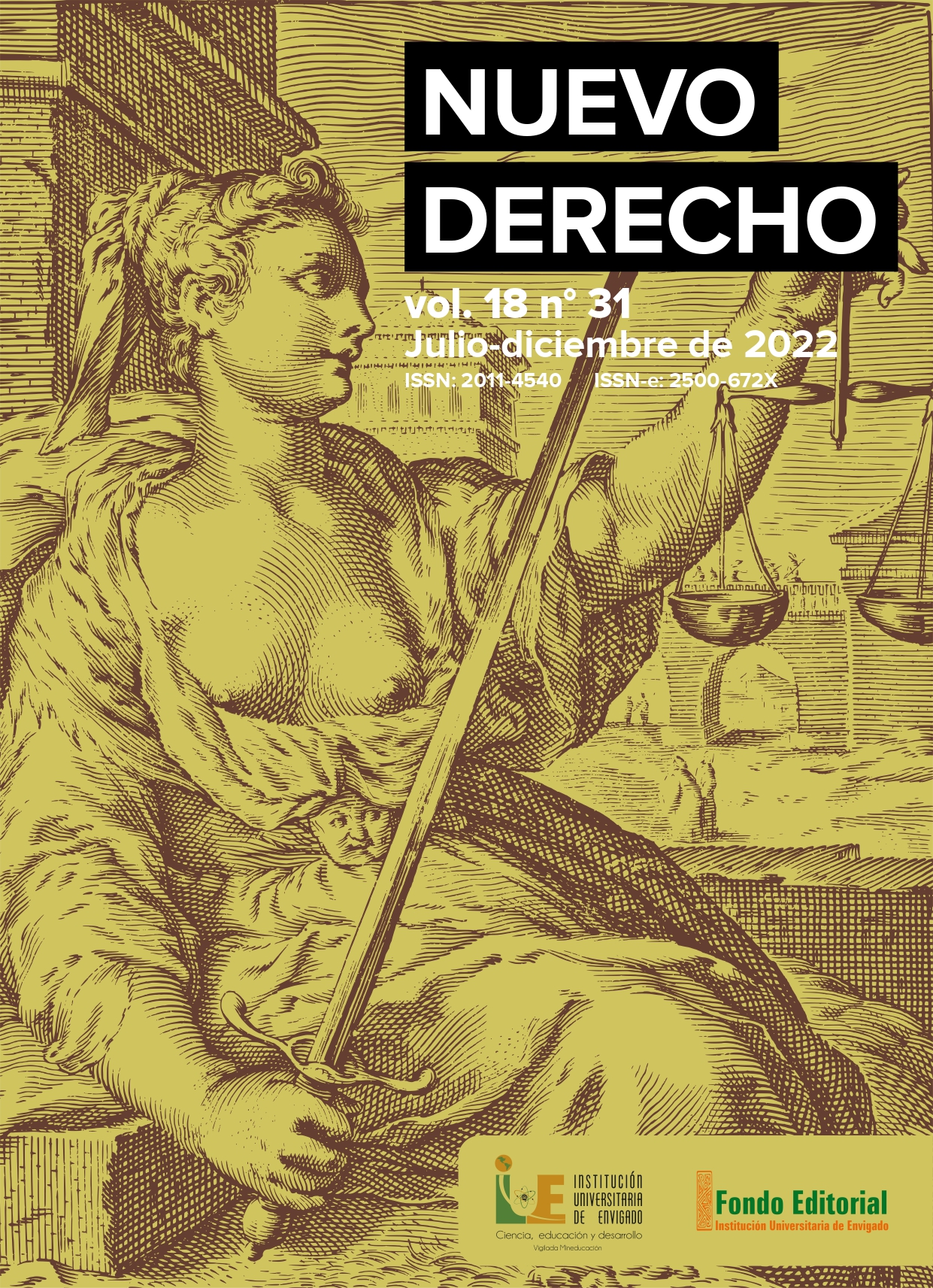Rights and duties in Artificial Intelligence: two unfinished debates regarding its regulation
DOI:
https://doi.org/10.25057/2500672X.1479Keywords:
Artificial Intelligence, Right, Robotics, Technology, ResponsibilityAbstract
As a result of social dynamism, climate changes, wars, social insufficiencies and advances in technology, humanity is constantly advancing, this in order to meet needs in different scenarios of life, such as: comfort, the workplace, the student environment, entertainment and others; that is why human beings always tend to improve their lives, as well as have been advancing in the creation of artificial systems through Artificial Intelligence, such as robots, automatons and at some point androids, which aim to help in the realization of daily activities ranging from simple tasks to tasks of high complexity.
From the above, any change brings with it collateral effects, these sometimes produce conflicts and unrest, which for the case in question arise from the relationship man –machine (artificial intelligence); Which is why societies have foreseen the implications that come with it, the fact of not regulating the use of technology in a good way and for the human good. The negative consequences that scientific advances can have generate a number of predicaments that good customs alone cannot limit.
Colombia does not escape such a dynamic, despite this it is lacking in many technologies that are already used in much of the world. This establishment of responsibilities brings with it different edges, because if there is responsibility the counterweight of the premise would be the rights; all these issues are approached from an analytical perspective, since the subject in question is totally new.
References
Asimov, I. (s. f.). Círculo vicioso. https://lecturia.org/cuentos-y-relatos/isaac-asimov-circulo-vicioso/4060/
Becerra, J., Cotino Hueso, L., León I., Sánchez-Acevedo, M., Torres Ávila, J. y Velandia Vega, J. (2018). Marco teórico y aproximación jurídica al big data: algoritmos, inteligencia artificial y transformación digital. En J. Becerra (editor) Derecho y big data (pp. 39-64). Universidad Católica de Colombia.
Borja, R. y Sánchez J. (2018, 13 de febrero). Los drones y la posible responsabilidad civil derivada de su uso. Cinco días. https://cincodias.elpais.com/cincodias/2018/02/13/companias/1518517096_989612.html
Congreso de la República de Colombia. (1887). Código Civil Colombiano. Ley 57 de 1887. Artículo 2341. Diario Oficial: 2867. Bogotá: Congreso de la República.
Congreso de la República de Colombia. (2000). Código Penal Colombiano. Ley 599 de 2000. Artículo 29. Diario Oficial: 44.097. Bogotá: Congreso de la República.
Darlington, K. (2018). Sistemas de inteligencia artificial que gestionan emociones humanas. Open Mind BBA. https://www.bbvaopenmind.com/tecnologia/inteligencia-artificial/sistemas-de-inteligencia-artificial-que-gestionan-emociones-humanas/
Diéguez Méndez, Y. (2011). El derecho y su correlación con los cambios de la sociedad. Derecho y cambio social, 8(23). 1-28. https://www.derechoycambiosocial.com/revista023/CARATULA.htm
Díez Spelz, J. F. (2021). ¿Robots con derechos? La frontera entre lo humano y lo no-humano. Reflexiones desde la teoría de los derechos humanos. Revista IUS, 15(48), 259-287. https://doi.org/10.35487/rius.v15i48.2021.742
Gewirth, A. (1996). The Community of Rights. The University of Chicago Press.
Gil Álvarez, J. (2010). Evolución y futuro de la inteligencia artificial aplicada a la robótica. https://www.academia.edu/22668643/EVOLUCI%C3%93N_Y_FUTURO_DE_LA_INTELIGENCIA_ARTIFICIAL_APLICADA_A_LA_ROB%C3%93TICA
Guillén Torres, B. (2016). El verdadero padre de la inteligencia artificial. Open Mind BBVA. https://www.bbvaopenmind.com/tecnologia/inteligencia-artificial/el-verdadero-padre-de-la-inteligencia-artificial/
Jones, J., Seiger, B. & Flynn, A. (1998). Mobile Robots: Inspirations to Implementation. CRC Press.
Ley Fundamental de la República Federal de Alemania. Artículo 1. 23 de mayo de 1949. (Alemania). https://www.btg-bestellservice.de/pdf/80206000.pdf
Martínez García, J. (2018). Derecho inteligente. Cuadernos Electrónicos de Filosofía del Derecho, (37) 95-114. https://doi.org/10.7203/CEFD.37.11440
McCarthy, J., Minsky, M., Rochester, N. & Shannon, C. (1955). A Proposal for the Dartmouth Summer Conference on Artificial Intelligence. http://stanford.io/1bqrAR1
Ministerio de Tecnologías de la Información y las Comunicaciones. (2019, 22 de mayo) Colombia se adhiere a acuerdo de Inteligencia Artificial ante la OCDE. https://mintic.gov.co/portal/inicio/Sala-de-Prensa/MinTIC-en-los-Medios/100826:Colombia-se-adhiere-a-acuerdo-de-Inteligencia-Artificial-ante-la-OCDE.
Morales Ascencio, B. (1997). La lingüística en la inteligencia artifici al. Forma y Función, (10), 25-50. https://revistas.unal.edu.co/index.php/formayfuncion/article/view/17072
Parlamento Europeo. (2016, 31 de mayo). Proyecto de informe con recomendaciones destinadas a la Comisión sobre normas de Derecho civil sobre la robótica (2015/2103(INL)). https://www.europarl.europa.eu/doceo/document/JURI-PR-582443_ES.pdf?redirect
Parlamento Europeo. (2017, 16 de febrero). P8-TA (2017)-0051. Normas de Derecho civil sobre robótica. https://www.europarl.europa.eu/doceo/document/TA-8-2017-0051_ES.pdf
Porcelli, A. (2020). La inteligencia artificial y la robótica: sus dilemas sociales, éticos y jurídicos. Derecho global. Estudios sobre derecho y justicia, 6(16), 49-105. https://doi.org/10.32870/dgedj.v6i16.286
Prestel Alfonso, C. (s. f.). Ética y Derecho. Los derechos humanos. http://recursostic.educacion.es/secundaria/edad/4esoetica/quincena5/quincena5_contenidos_5.htm
Rabadán, A. (2019). Horizonte de la inteligencia artificial y neurociencias: acerca de robots, androides y cyborgs. Medicina, 79(5), 397-400. https://www.medicinabuenosaires.com/indices-de-2010-a-2019/volumen-79-ano-2019-no-5-indice/horizonte/
Rivera Estrada, J. y Sánchez Salazar, D. (2016). Inteligencia artificial, ¿reemplazando al humano en la psicoterapia? Escritos, 24(3) 271-291. https://doi.org/10.18566/escr.v24n53.a02
Russell, S. y Norvig, P. (2013). Artificial Intelligence: A Modern Approach. (2nd ed.). Prentice Hall.
Santos González, M. (2017). Regulación legal de la robótica y la inteligencia artificial: retos de futuro. Revista Jurídica de la Universidad de León, (4), 25-50. https://doi.org/10.18002/rjule.v0i4.5285
Turing, A. (1950). Computing Machinery and Intelligence. Mind, 59(236), 433-460. https://doi.org/10.1093/mind/LIX.236.433
Villalba Gómez, J. (2016). Problemas bioéticos emergentes de la inteligencia artificial. Diversitas, 12(1), 137-147. https://doi.org/10.15332/s1794-9998.2016.0001.10
How to Cite
Downloads
Downloads
Published
Issue
Section
License
Copyright (c) 2022 Nuevo Derecho

This work is licensed under a Creative Commons Attribution-NonCommercial-ShareAlike 4.0 International License.
Authors should declare that the article is an original work that has not been totally or partially published in any print or electronic media, which has not been submitted simultaneously to another publication and that is not currently under evaluation in another publication. On the other hand, I leave (we) evidence that the statements made therein are the sole responsibility of the / the authors / is.
All data and references to already published material are properly identified with their respective credit and included in the bibliographical notes and appointments that stand out as such and, in cases that require it, I have the proper authorizations for those with the respective rights; in case of any dispute or claim relating to intellectual property rights, we take responsibility exonerating responsibility to Nuevo Derecho.
If the article is approved for publication, the authors transfer the copyright to the journal New law to publish, distribute electronic copies and included in indexing services, directories or databases of national and international data on Open Access under the Creative Commons 3.0 Attribution-Noncommercial (CC bY-NC-SA) by which the authors retain their copyrights and allow them to others copy and distribute your work provided they recognize the corresponding authorship and the work is not used for purposes commercial.
Therefore, new law does not retain the rights to reproduce or copy (copyright), so the authors will have the final versions, to disseminate them in institutional repositories, personal blogs or any other electronic or print media, with the sole condition to make mention of the original source of publication, in this case Nuevo Derecho.

| Article metrics | |
|---|---|
| Abstract views | |
| Galley vies | |
| PDF Views | |
| HTML views | |
| Other views | |




